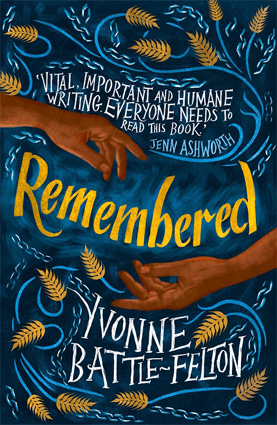In this group of memoirist essays art and life intersect to create a powerfully moving portrait of cultural and personal change. It feels like this book has been a long time coming and in later essays Sinéad Gleeson refers to its gradual creation as well as obstacles which sharpened its focus. I’ve been familiar with Gleeson’s work as a journalist and a curator since she edited two stunning anthologies of Irish short fiction by women: “The Long Gaze Back” and “The Glass Shore”. So I was already familiar with her stance as a feminist and aesthete, but it wasn’t till reading this gripping and mesmerising book that I understood how her personal history partly informs her conversation with literature and the arts. The essays roughly follow the trajectory of her life from childhood to adulthood and the severely challenging medical issues she’s faced along the way. These health issues presented many heartrending and difficult obstacles, but they also gave Gleeson a unique perspective of the world around her as a woman, citizen, friend, mother and intellectual. She charts how her beliefs and feelings have evolved alongside the society around her. Certainly she’s lived through many personal challenges, but she’s never let them define her. Rather, they’ve inspired a deeper form of engagement with the world and fervent belief that “Art is about interpreting our own experience.”
I read these essays in chronological order and, while they would certainly be just as impactful read in isolation, it’s touching following her journey from a childhood as a devote Catholic visiting Lourdes hoping for a miracle cure to an adult political activist canvassing from door to door to help overturn Ireland’s abortion ban. We see different angles of her experiences with illness such as a rare disorder that caused her bones to deteriorate and later battles with cancer. She also recounts how her past illnesses created complications for her pregnancies. Her many visits to the hospital inform her ontological understanding of the body as a physical and social being. She perceives how “The pregnant body is not solely its owner’s domain. In gestating another person you become public property. The world – doctors, friendly neighbours, women in shop queues – feels entitled to an opinion on it.” Her experiences with doctors and legislation involving the body sharpen her resolve about the importance of individual autonomy and respecting what a person wants and needs.
There are also many very perceptive assessments of the work of numerous visual and performance artists as well as writers. Gleeson poignantly reflects on her personal connection to their themes and subject matter. For instance, she describes how she’s moved by the work of Frida Kahlo as someone whose body was similarly physically restricted through medical procedures. She notes how “Immobility is gasoline for the imagination: in convalescence, the mind craves open spaces, dark alleys, moon landings.” Gleeson seeks out artists who meaningfully frame their experiences in a way that broaden the political conversation and offer moments of personal solace. The essay 'The Adventure Narrative' also honours cavalier women who have set out to explore the world since this is traditionally seen as a masculine activity – as explored in Abi Andrews’ novel “The Word for Woman is Wilderness”. But, aside from noteworthy female explorers and impactful women artists, Gleeson also chronicles the experience of women who have been left out of the history books such as in the essay 'Second Mother' where she memorializes the life of a great woman who inspired her passion for reading.
I was utterly entranced by this book. It’s incredibly brave to write so openly about such personal subject matter. In writing so thoughtfully about her life Gleeson compellingly explores many larger ideas and issues, showing how they connect to a shared sense of culture and society. For all the heartache and struggle these essays cover, this is also a wonderfully optimistic and uplifting book that ought to be treasured.































